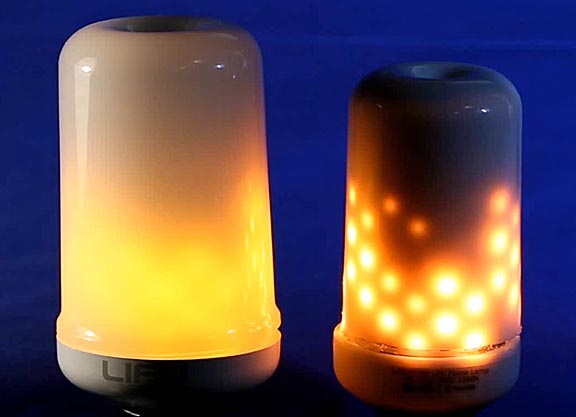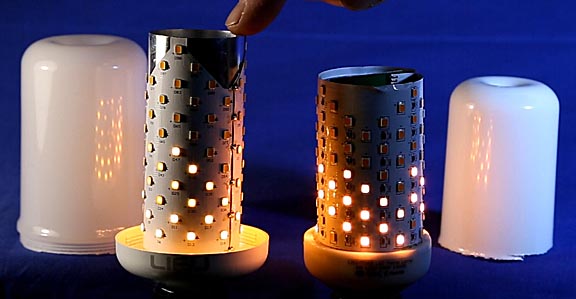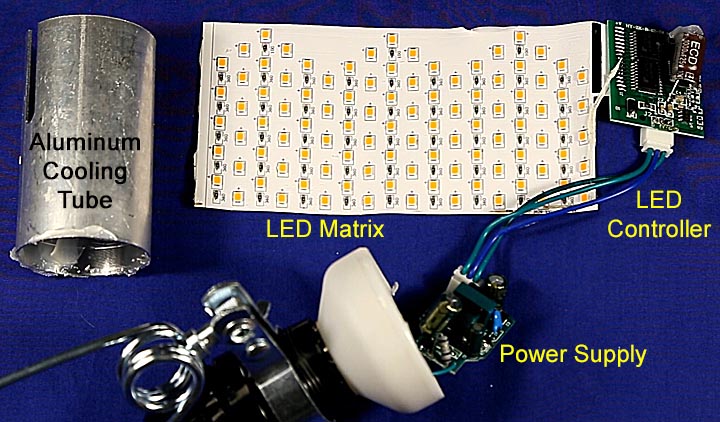


Flame effect
bulbs can produce remarkable fire-like effects.
But, while
some look great, others look like randomly blinking dots.
This page
explains how they work and why some look better than others.
In the image above, the bulb on the left is the Lightone Flame Effect bulb while the one on the right is an Abedoe Fire Effect bulb.
In the the
first image, the Abedoe presents a very dot-like illumination pattern
while the Lightone is much more diffuse and looks much closer to a
true flame. Removing the diffusers shows why.

The Lightone has its LEDs mounted on a smaller diameter tube and comes with a larger diameter outer diffuser than the Abedoe. This means that there is a greater distance between the LEDs and the diffuser. This allows the light to spread out in the Lightone before it strikes the diffuser resulting in a softer, more blended fire effect. In the Abedoe, the LEDs are so close to the diffuser, almost touching, that the light from each LED burns through the diffuser with very little softening.
Removing the insides and spreading them out shows how they work.

These bulbs average 100 LEDs, which are mounted on a sheet of flexible plastic, which is in turn attached to an aluminum cylinder with thermally conductive tape. While each LED doesn't produce very much heat, it does so in a small area. This can lead to local hot spots that can shorten the LEDs life. The aluminum cylinder diffuses these hot spots and permits more efficient cooling. The plastic diffusers that cover the LED matrixes have holes in their tops to enable air to more easily circulate and cool the insides of the bulbs.
Power comes in through the screw base and passes through a power supply that converts 120 VAC line power to the lower voltage DC power the LEDs require. The LED controller fires the LEDs in patterns that simulate the rising flames of a fire to produce a flame-like effect. Some LED flame effect bulbs are advertised as having millions of patterns to prevent obvious repetitions of flames. But, all of the six brands I've tested appear to follow patterns that repeat every few seconds.
The following
video presents the contents of this page in a live action format so
you can see what these bulbs look like in operation:
Return to my main page to browse 60 other subjects